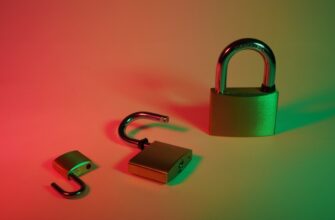## Introduction: The Critical Need for Ledger Security
In the world of cryptocurrency, hardware wallets like Ledger are hailed as the gold standard for securing digital assets. But with rising cyber threats, many ask: **Is it safe to guard Ledger from hackers?** The short answer is yes—*if* you implement rigorous security practices. Ledger devices use military-grade encryption and offline storage to protect private keys, yet user behavior remains the weakest link. This guide explores proven strategies to fortify your Ledger against evolving threats, ensuring your crypto stays uncompromised.
## How Ledger’s Built-In Security Protects You
Ledger wallets leverage multiple layers of hardware and software defenses:
* **Secure Element (SE) Chip:** A tamper-resistant microprocessor (similar to credit cards) stores private keys, isolating them from internet-connected devices.
* **PIN Protection:** Every transaction requires physical confirmation via your PIN, blocking remote access.
* **Recovery Phrase:** A 24-word backup phrase (never stored digitally) allows wallet recovery if the device is lost.
* **Offline Storage:** Private keys never leave the device, eliminating exposure to online hacks.
These features make direct hacking of the device itself extremely difficult—but not impossible if users neglect protocols.
## Top 5 Hacker Threats Targeting Ledger Users
While Ledger’s hardware is robust, attackers exploit human error and peripheral vulnerabilities:
1. **Phishing Scams:** Fake emails or websites trick users into revealing recovery phrases or Ledger Live credentials.
2. **Malware Attacks:** Keyloggers or screen grabbers on connected computers steal PINs during transactions.
3. **Supply Chain Tampering:** Intercepted devices modified to leak data before reaching users (rare but possible).
4. **Physical Theft:** Unsecured devices accessed if PINs are weak or written nearby.
5. **Fake Ledger Apps:** Malicious mobile/desktop apps mimicking Ledger Live to capture sensitive data.
## 7 Essential Practices to Guard Your Ledger from Hackers
Maximize safety with these proactive measures:
* **Never Digitize Your Recovery Phrase:** Write it on steel/cardstock and store offline—*never* on phones, clouds, or emails.
* **Enable Passphrases:** Add a 25th custom word (BIP39) for an extra security layer against physical theft.
* **Verify Transactions On-Device:** Always confirm recipient addresses and amounts on your Ledger screen, not your computer.
* **Update Firmware Regularly:** Patches vulnerabilities—install updates only via official Ledger Live.
* **Use a Dedicated Secure Computer:** Avoid installing Ledger Live on public or malware-prone devices.
* **Beware of “Support” Scams:** Ledger never asks for recovery phrases—ignore DMs and unsolicited help offers.
* **Enable 2FA for Ledger Live:** Add Google Authenticator to your account for login protection.
## What to Do If Your Ledger Is Compromised
Act immediately if you suspect a breach:
1. **Disconnect the Device:** Unplug your Ledger from all devices and networks.
2. **Transfer Funds Securely:** Use your recovery phrase to move assets to a new wallet (on a clean device).
3. **Reset the Compromised Ledger:** Wipe it via settings and generate a new recovery phrase.
4. **Report to Ledger:** Contact official support and share attack details to help prevent future incidents.
5. **Scan for Malware:** Clean your computer with antivirus tools before reinstalling Ledger Live.
## FAQ: Guarding Your Ledger from Hackers
**Q1: Can hackers remotely access my Ledger if it’s offline?**
A: No. Without physical access and your PIN, remote hacking is virtually impossible due to the Secure Element’s isolation.
**Q2: Is Ledger Live a security risk?**
A: Ledger Live is safe when downloaded from ledger.com. Fake versions are the real threat—always verify URLs and SSL certificates.
**Q3: Should I worry about Ledger data breaches?**
A: While Ledger’s 2020 customer database leak exposed emails (not funds), enable 2FA and avoid reusing passwords to mitigate risks.
**Q4: Can a virus steal crypto from my Ledger?**
A: Only if you approve a malicious transaction on the device. Always verify on-screen details before confirming.
**Q5: Are newer Ledger models (Nano S Plus/X) safer?**
A: Yes. They feature upgraded Secure Element chips and Bluetooth encryption (for Nano X), but core security practices remain unchanged.
## Final Thoughts
Guarding your Ledger from hackers hinges on combining its robust hardware with disciplined habits. By treating your recovery phrase as sacred, verifying every transaction, and staying alert to social engineering, you transform your Ledger into an impenetrable vault. Remember: in crypto, *you* are the ultimate guardian—equip yourself with knowledge, and sleep soundly knowing your assets are secure.








